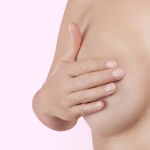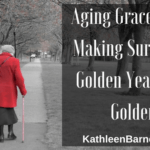Editor’s Note: If you like what you’re reading here and want to keep up with my blog entries, it’s easy to subscribe to my blog feed and have them land in your inbox 2-3 times a week. Just click the RSS subscribe button and follow the prompts.
Angelina Jolie made a very private decision public last week when she announced in a New York Times op ed piece that she had undergone a preventive double mastectomy after she learned that she carries a genetic mutation that puts her at very high risk for breast and ovarian cancer.
I don’t question Jolie’s decision or the decision of anyone on how they will address such life-altering choices. I don’t even question the sincerity of Jolie’s decision to go public with it in view of her status as an opinion leader. My intention in writing this article is simply to educate women (and men—who can also get breast cancer) about natural, less invasive and effective options.
A little background: The gene mutation Jolie carries is called BRCA-1. BRCA-1 and 2 carry with them a high risk of breast cancer (in Jolie’s case, 87%) and ovarian cancer. The fact that Jolie’s mother died of ovarian cancer at age 56 no doubt played a part in her decision. However, it is also interesting that Jolie did not choose to have her ovaries removed, despite her 50% increased risk of ovarian cancer, as she so painfully experienced with her mother’s death. Ovarian cancer is far more often fatal than breast cancer since it has few symptoms and is rarely diagnosed until it is in advanced stages.
Here’s the rub:
Jolie had three surgeries in 11 weeks: a nipple sparing surgery, two weeks later the mastectomy itself and, nine weeks later, the reconstruction surgery. Just the fact of three major surgeries in a short period of time is enormously physiologically stressful on the human organism and psychologically stressful on the human mind. We know that stress lowers immune function and increases the risk of – you guessed it – cancer, among other things. Add into that the normal risks of any surgery, much less three surgeries — infection, drug reactions, anesthetic “accidents” – and you have an exceptionally high risk of something going wrong.
Here’s the good news for anyone with close family members who have had breast cancer and are therefore may have the BRCA 1 or 2 mutations: There are alternatives.
First: Thermograms:
These so-called alternatives to mammograms have several advantages, most importantly I this cause that they can detect unusual blood vessel growth and/or inflammation as much as ten years before any cancerous cell amalgamations occur. Also, unlike mammograms, there is no radiation (Hello? Radiation causes cancer!) and no compression of the breast, which can actually rupture a malignant tumor and spread the disease. For those with confirmed BRCA 1 or 2 mutations, other alternatives include regular ultrasounds and/or MRIs, not CT scans, which themselves deliver unacceptable amounts of radiation.
Second: Lifestyle and watchfulness:
The Human Genome Project, which identified BRCA 1 and 2, (now the subject of a Supreme Court case about who owns the information about human genes—but that’s the subject of another post) also birthed us two pivotal new sciences: epigenetics and nutrigenomics. I won’t bore you with all the biochemistry, but let me say simply that these two new sciences show us that we can change our genetic structure by our lifestyle choices, most particularly in the case of breast cancer, by food and detoxification choices. Going just a bit farther—avoiding environmental estrogens found in meat, dairy products, plastics, household cleaners and more, we can actually re-awaken the sleeping genes that naturally combat cancer.
In the case of someone with confirmed BRCA-1, like Jolie, a few healthy lifestyle choices and a lot of vigilance could be all the prevention that is needed.
I’ll be writing a lot more on this. Stay tuned.
Kathleen Barnes has written more than 20 books on natural health subjects, including The Secret of Health: Breast Wisdom with Dr. Ben Johnson.








Comments are closed.